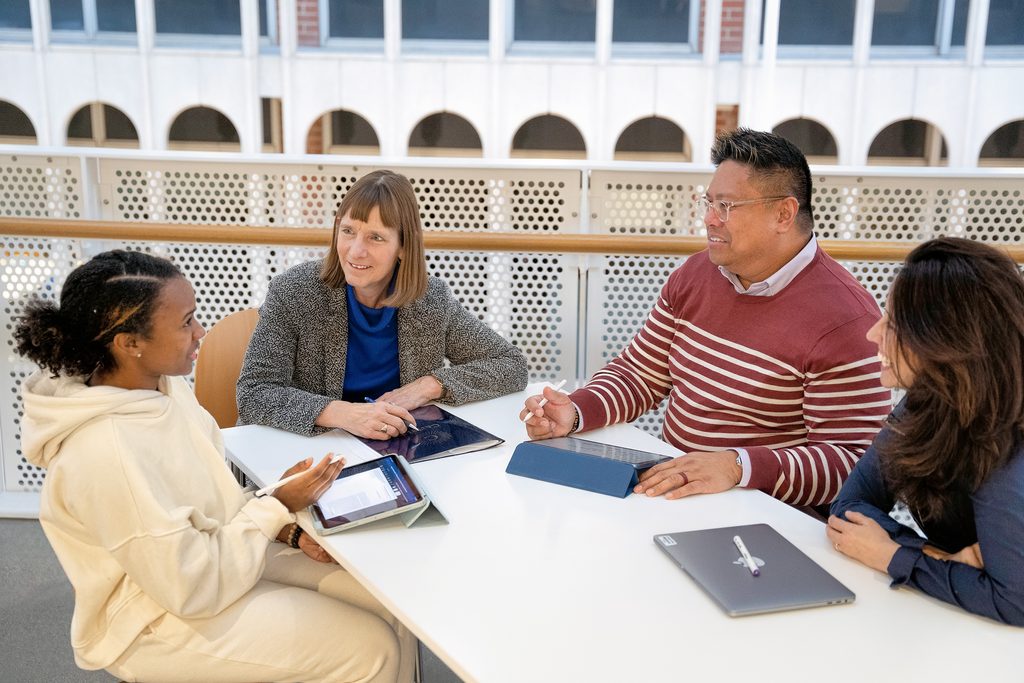
We tend to think of academia as deeply rooted in the past. While Carleton’s 2023 curriculum reflects both longstanding disciplines and emerging interdisciplinary groupings, our general idea of what a liberal arts education consists of still harkens back to the classical conception of the quadrivium and trivium, the seven liberal arts that constituted a well-rounded education. When we don our medieval caps and gowns for ceremonies like convocation and commencement, we are consciously honoring that history.
Fundamentally, however, higher education is in the future business. As an undergraduate liberal arts college, Carleton’s role is to prepare young people for lives of meaning and purpose in a world that doesn’t exist yet. If you reflect on the significant changes that have taken place in the world since your own graduation, whether that was 60 years ago or six years ago, you will likely recognize how few of them could have been predicted the day you started college. Yet I know from talking to alums that they feel well served by their Carleton education many decades later. How can that be?
Our strategic planning process, Carleton 2033, answers that question by providing an opportunity for the community to reflect on the educational experience of today and imagine the educational experience of tomorrow. We begin from a position of great strength. With robust applications, high rankings, and strong support from our alumni community, there is much to feel proud of at Carleton. Yet it would be a mistake to allow success to make us complacent.
Higher education is undergoing a period of tremendous pressure and change that predates COVID-19. With declining numbers of high school graduates, increasing concern about college costs, and new technologies rapidly changing the ways in which we present and process information, every college and university needs to be prepared for the possibility that current strategies may not work in the future.
Our examination begins with broad framing questions that lead to specifics. For example: What does a 21st century liberal arts education look like? Answering that touches on topics like the balance among disciplines and options for interdisciplinary study; the enhanced role of technology in the classroom after COVID; and how the Career Center can best partner with individual departments to provide students with information about emerging career paths.
The appointed working groups are pursuing these questions in a variety of venues across the college. Open forums, special meetings, and consultation with existing committees have allowed them to gather input from students, faculty, and staff. Trustees and alumni are being engaged through online presentations and discussions. Local community partners have been invited to offer input. We are also gathering data, including a market research study that will give us information about how Carleton is regarded by external stakeholders, including parents, employers, and academic peers.
In many ways, the process of working together is as important as the answers we discover. After the period of stress, fragmentation, and change that we experienced over the last several years, bringing the community together to reaffirm our common purpose is an end in itself. I know from talking with many of those involved that they are enjoying the opportunity for thoughtful conversations among people who don’t always find themselves around the same table.
Earlier this term, I gathered input from students by setting up a table in Sayles and inviting students to share their thoughts on their Carleton experience and their hopes for Carleton’s future. I love hearing what’s on students’ minds. Some had detailed comments on what they enjoyed about specific classes, or what courses they hoped we would offer in the future. Others wanted to talk about our continued diversity and inclusion efforts, and how the goals of the IDE Plan would be strengthened by the strategic planning process. A few just wanted to make sure we knew which sidewalks were still icy that day, or what foods they’d like to see BonApp serve more often. What they all shared was tremendous energy, enthusiasm, and commitment to the college.
As always, talking with students is the best reminder of the importance of our efforts to make Carleton as strong as it can be, now and for decades to come. Their futures depend on it.

Add a comment